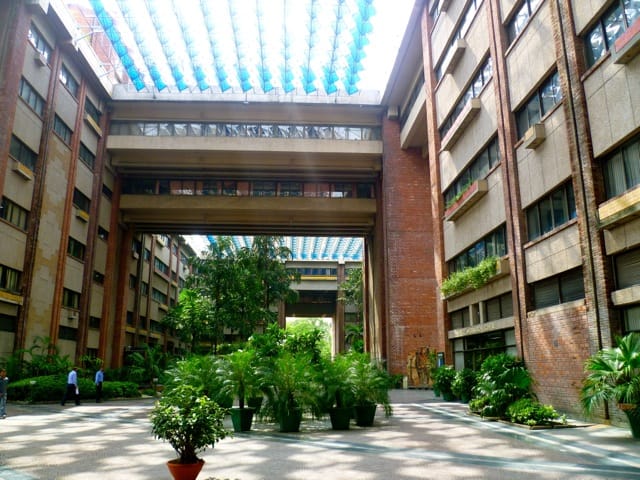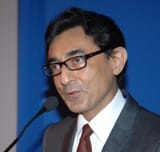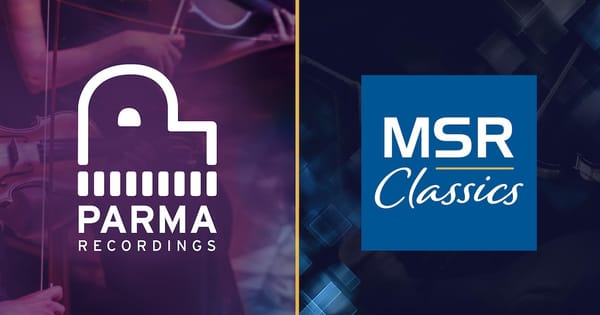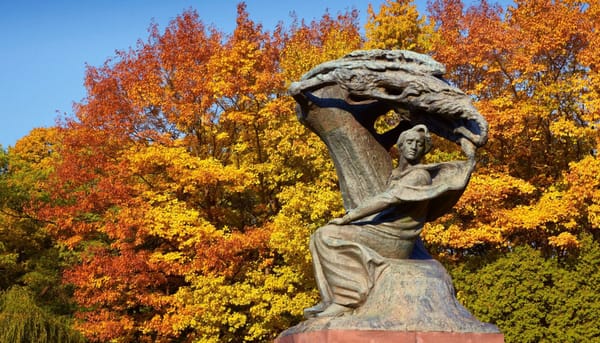WHY OPERA AT HABITAT?

About two years ago, I was asked by Vidyun Singh, who heads the Programmes Division of the India Habitat Centre, if I would be interested in curating and programming a monthly series of screenings of operas at the newly-renovated Stein Auditorium, with its excellent new video projector and sound system. I was immediately enthusiastic about the prospect and it didn’t take me more than a few minutes to say yes. After all, I have been addicted to Western classical music, both instrumental and operatic, since my school days and have striven at every stage of my life to spread the word of the joys it can bring through radio and television broadcasts, articles and criticism of concerts in newspapers and music appreciation programmes, as well as voluntary work with organisations devoted to the promotion of its amazingly rich heritage.
If Western classical music has for decades been a very niche area of interest among Delhi audiences, opera has been just a tiny corner of this niche. However, over the last decade or so, there has been increasing interest in Western classical music and, most surprisingly, in opera as well. Over this period of time, Delhi has witnessed home-grown productions of opera, thanks to the pioneering work of Francis Wacziarg and The Neemrana Music Foundation. The notable soprano and teacher, Situ Singh Beuhler has nurtured an entire generation of talented young singers of Delhi into the very demanding discipline of operatic singing. Choirs such as the Capital City Minstrels have further enriched the musical life of the capital by bringing Western vocal music before our audiences. For an even longer time, the Delhi Music Society and the Delhi School of Music that it runs have been actively working towards promoting Western classical music teaching and appreciation over the last five decades. And there have been the inspirational music appreciation programmes and screenings of operas and ballets that have been presented from time to time by my friend Dr. R.P. Jain for over three decades.
Against this background, it seemed obvious that we should also try and familiarise our increasingly interested audiences with the vast, varied and exciting repertoire of operatic masterpieces stretching over the last four centuries.
In the Western tradition, opera has always been considered the most comprehensive of the performing art forms, encompassing not only the arts of vocal and instrumental music, but also those of theatre, dance, design, costumes and lighting. It is drama, human emotion and social comment at its most heightened and intense level of expression, ranging across the entire spectrum, from the sublimely philosophical to the ridiculously farcical.
For us Indians, immersed as we are from early childhood in our own extremely robust and very different indigenous instrumental and vocal traditions, Western classical styles, especially the kind of vocal techniques that have evolved over the centuries, are very alien and take some getting accustomed to. But the rewards for those who are attuned to them can be immensely gratifying.
The last two years of programming the Opera at Habitat series on a regular, monthly basis have been extremely challenging and interesting in equal measure. The attempt has been to programme operas that are largely from the mainstream repertoire and are well-known. The series commenced with a one-off screening in 2013 of Mozart’s The Magic Flute, the work that is most often used to entice young listeners into the world of opera. It then got under way on a regular, monthly basis from January 2014.
Firm favourites by the greatest opera composers were programmed. These included The Marriage of Figaro, Don Giovanni and Cosi Fan Tutte by Mozart; Rigoletto, La Traviata and Otello by Verdi; La Boheme by Puccini; The Flying Dutchman by Wagner; Salome and Der Rosenkavalier by Richard Strauss; Die Fledermaus by Johann Strauss II; The Barber of Seville by Rossini; Carmen by Bizet; Fidelio by Beethoven; Lucia di Lammermoor and The Daughter of the Regiment by Donizetti; Carmen by Bizet; Eugene Onegin by Tchaikovsky; Orfeo ed Euridice by Gluck; and Pagliacci by Leoncavallo.
Our audiences are gradually increasing and there is a small and dedicated band that tries to attend each screening. I’m sure that, over time, and with greater awareness of this unique series, more and more music lovers will be drawn into the enthralling world of opera, with its infinitely engaging variety of expressions of the human condition.





